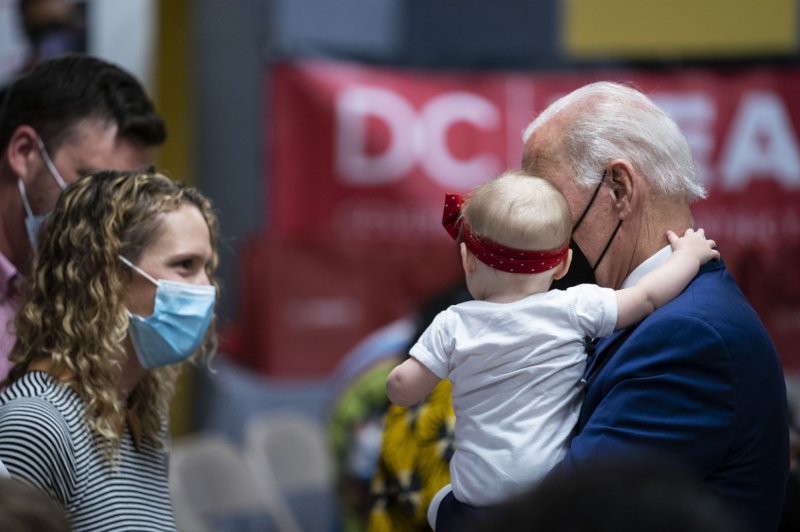A new study suggests that male infants face a higher risk of neurodevelopment diagnoses if their mother became infected with COVID-19 during pregnancy. File Photo by Sarah Silbiger/UPI |
License Photo
March 23 (UPI) -- Researchers found in a new study that males born to mothers with COVID-19 infections during pregnancy were more likely to receive a neurodevelopment diagnosis such as autism spectrum disorder in the first year after delivery.
The details of the study were published by investigators at Massachusetts General Hospital on Thursday in the journal JAMA Network Open.
The study's authors probed electronic health records of 18,355 live births during the COVID-19 pandemic, including 883, or 4.8%, of individuals who tested positive for COVID-19 during pregnancy.
Of the 883 children exposed to the coronavirus before birth, 26, or 3%, received a neurodevelopmental diagnosis in their first year of life. The researchers noted that 1.8% of children not exposed to COVID-19, or 317, received such a diagnosis.
After accounting for various factors, including race, ethnicity, insurance status, hospital type, maternal age, and preterm status, researchers found maternal COVID-19 cases were associated with nearly two-fold higher odds of a neurodevelopmental diagnosis at 12 months of age among male children. The reason for the disparity between males and females was not immediately clear in the research.
"The neurodevelopmental risk associated with maternal SARS-CoV-2 infection was disproportionately high in male infants, consistent with the known increased vulnerability of males in the face of prenatal adverse exposures," Dr. Andrea Edlow, an associate professor of Obstetrics, Gynecology, and Reproductive Biology, and a Maternal-Fetal Medicine specialist at Massachusetts General Hospital said.
Dr. Roy Perlis, a co-lead author of the research along with Edlow, said that larger studies and longer follow‐ups will be needed to reliably test the results.
"We hope to continue to expand this cohort, and to follow them over time, to provide better answers about any longer-term effects," Perlis said.















